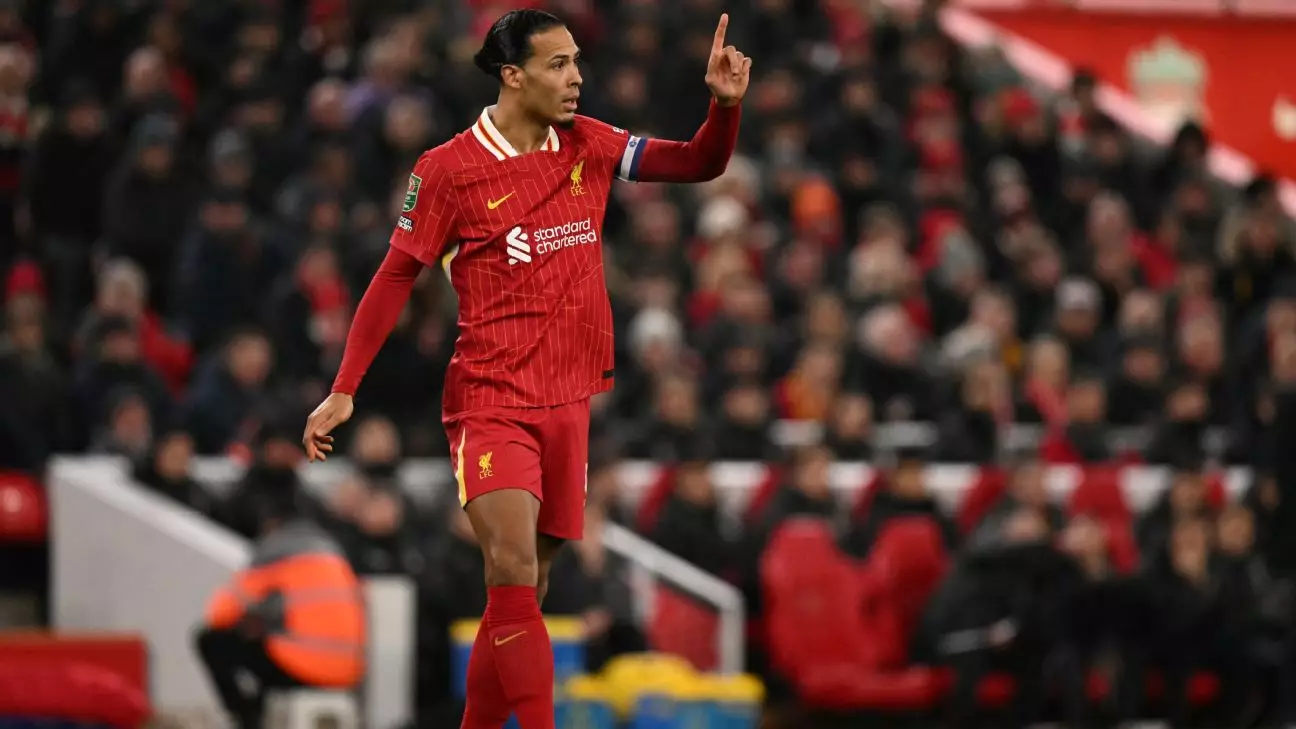In a commanding display at Anfield, Liverpool dismantled Tottenham Hotspur 4-0 in the Carabao Cup semifinal, securing a position in the final. Goals from Cody Gakpo, Mohamed Salah, Dominik Szoboszlai, and captain Virgil van Dijk highlighted a performance that, despite its lopsided nature, left the Liverpool skipper feeling that there was room for improvement. This article delves into the implications of this match, examining the team’s performance and the overarching context of their current form.
From the outset, it was evident that Liverpool was determined to assert their supremacy. The team dominated possession and dictated the pace of the game, and their attacking prowess proved overwhelming for a Spurs side that struggled to find its rhythm. Yet, in spite of the convincing scoreline, Van Dijk’s discontent signals a deeper understanding of the game and a relentless pursuit of excellence. His critique of their first-half performance underscores a desire for an all-encompassing display that leaves no stone unturned.
The fact that Tottenham did not register a single shot on target reflects Liverpool’s defensive solidity and the inadequacies of Spurs’ attack. However, Van Dijk’s acknowledgment of missed intensity during the first half reveals the fine line that separates victory from triumph in a footballing context. The interruption in momentum, as highlighted by Van Dijk, can lead to missed opportunities to further punish the opposition, reminding the players that even minor lapses can be exploited in high-stakes matches.
Intensity and Tactical Execution
Van Dijk articulated a critical aspect of the game: the necessity of maintaining intensity. The captain’s concern for complacency stems from an awareness of the quality that Tottenham possesses, which can be dangerous if allowed to flourish. By applying relentless pressure and ensuring high levels of intensity, Liverpool can force errors from opponents, thereby maintaining their advantage.
The second half saw Liverpool shift gears, illustrating how adjustments can result in a significant change in a game’s narrative. With increased pressure and a more aggressive approach, Liverpool managed to thwart any potential resurgence from Spurs and wrap up the match decisively. Such tactical awareness and adaptability are hallmarks of a championship-winning side, positioning Liverpool not only for success in this tournament but also in their broader campaign across multiple competitions.
The victory against Spurs is more than just a passage to the Carabao Cup final; it exemplifies Liverpool’s ambitions this season. Currently sitting atop the Premier League with a six-point cushion over Arsenal and maintaining an assault on various fronts—including the Champions League and FA Cup—Liverpool is striving for a historic season where they could potentially secure all four major trophies. This quest for glory adds layers of intensity to every match, including the upcoming FA Cup tie against Plymouth Argyle.
Arne Slot, Liverpool’s manager, highlighted the importance of work ethic, especially considering their performance without the ball. His observations align with modern football’s emphasis on a cohesive team effort, where defensive responsibilities are equally shared among all players.
As Liverpool gears up to face Newcastle in the Carabao Cup final on March 16, their recent performance against Tottenham serves as both a confidence booster and a reminder of the levels they can reach. The blend of offensive finesse coupled with a relentless defensive strategy sets Liverpool apart as formidable contenders in every competition they enter.
While the scoreline may indicate a straightforward victory, the introspection from key players like Van Dijk emphasizes the complexity of football at a high level. Liverpool’s journey is far from over, and their willingness to seek improvement, even after a robust win, showcases a mentality geared towards sustained excellence—a quality that could very well define their season.


Leave a Reply